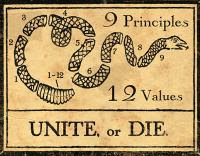Attorney General Eric Holder, the nation’s first black attorney general, told the Hispanic National Bar Association that he, too, is proud the U.S. Supreme Court has its first Hispanic justice with the recent appointment of Sonia Sotomayor.
Holder told the association’s annual convention in Albuquerque that the Obama administration is committed to increasing diversity in the legal profession—from the bench to all aspects of the federal government.
“As the nation’s law firm, the Justice Department can and should reflect the diversity of the communities that we are sworn to protect,” Holder said. “A diverse Justice Department is a strong Justice Department.”
Despite Sotomayor’s appointment and the nation’s growing Hispanic population, a panel unveiled a new report at Thursday’s luncheon that said Hispanic women make up only 1.3 percent of all lawyers in the United States.
That’s the lowest representation of any racial or ethnic group as compared to their overall presence in the nation, said Dolores Atencio, a Denver attorney and co-chairwoman of the association’s Commission on the Status of Latinas in the Legal Profession.
The study—a yearlong effort based on a national survey and 11 focus groups in cities with large Hispanic populations—was partly aimed at uncovering barriers that have prevented Hispanic women from entering the legal profession.
It found that Hispanic women are inadequately represented in leadership positions throughout the profession, and there’s an indication that they may earn less than their non-Hispanic counterparts.
Mari Carmen Aponte, a longtime attorney in Washington, D.C., said when she entered the profession in the late 1970s and early 1980s, there were only a handful of Latinas practicing law, including Sotomayor, and presumptions were often made that they weren’t qualified.
“Little did they know, we had to be better to be equal,” she said. “We had to work harder. We had to prove ourselves all the time.”
With Sotomayor’s appointment, Aponte said she no longer feels like she’s carrying the burden of having to prove herself.
“I get chills because this is a new feeling. This is liberating,” she said. “The burden has lifted because no longer can presumptions be made about Hispanic women lawyers and their competency.”
It was in the early 1970s that the association first lobbied the White House to appoint a Hispanic justice to the Supreme Court, Holder said.
While it look longer than some had hoped, Sotomayor is proof that what matters in America is whether someone is willing to work hard to make a name for themselves, he said.
“Children born today and in the future will no longer find it remarkable that a president of the United States looks like Barack Obama or that any justice of the Supreme Court looks like Sonia Sotomayor,” Holder said. “That should give us tremendous hope for our country’s future.”

No comments:
Post a Comment
Note: Only a member of this blog may post a comment.